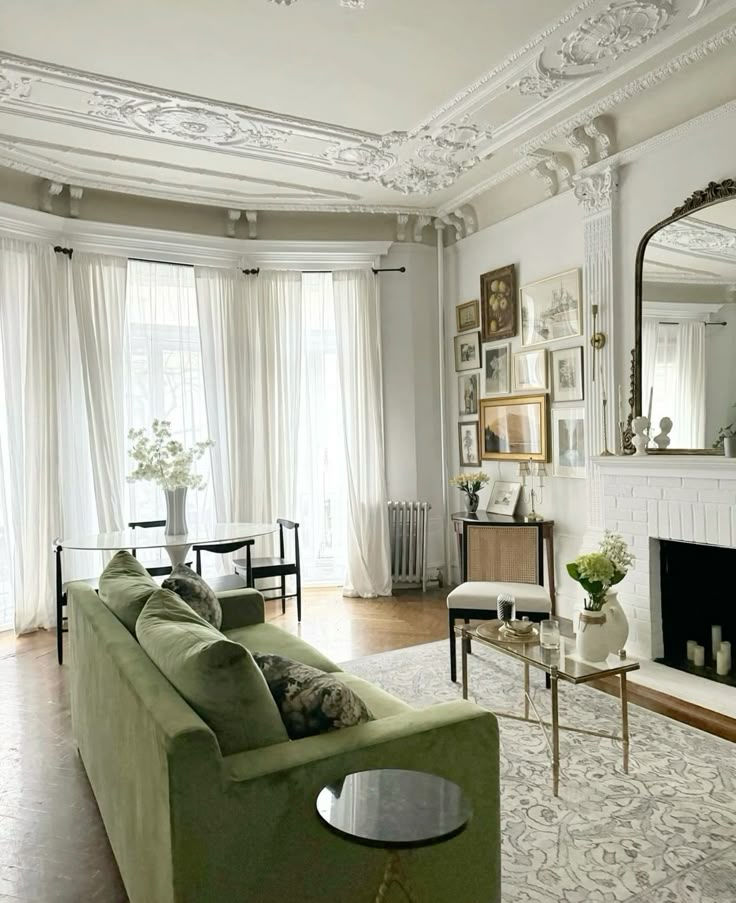Elegance Reimagined: A Complete Guide to Victorian Interior Design
- edatuncyurek15
- 21 Haz 2025
- 4 dakikada okunur

Where Romance Meets Grandeur
If you’ve ever dreamed of stepping into a space that feels like a scene from a classic novel—complete with ornate chandeliers, rich fabrics, gilded details, and dramatic flair—then Victorian interior design is calling your name. Inspired by the reign of Queen Victoria (1837–1901), this style represents a period of opulence, formality, and artistic expression.
Unlike modern minimalism, Victorian design embraces abundance, luxury, and drama—but that doesn’t mean it’s outdated. In fact, when done thoughtfully, Victorian interiors can feel just as captivating today as they did in the 19th century.
Let’s explore how you can bring Victorian elegance into your home while keeping it fresh and livable.
A Brief History of Victorian Interior Design
Victorian design flourished during the Industrial Revolution, a time when mass production made ornate decor more accessible to the rising middle class. Homes were seen as a reflection of one’s status, taste, and refinement. As a result, interiors were richly layered, full of pattern, color, and symbolism.
Victorian homes often featured multiple rooms, each with a specific purpose (parlor, drawing room, study), and each decorated with intention and detail. Today, this layered aesthetic is celebrated for its storytelling, texture, and timeless romance.
Core Elements of Victorian Interiors
1. Color Palette: Rich, Deep, and Dramatic
Victorian interiors favor dark and moody tones that evoke warmth and sophistication. Popular shades include:
Burgundy, wine red, and deep plum
Emerald green and navy blue
Warm browns, bronze, and gold accents
Creams and muted pastels in more romantic rooms
Walls are often adorned with floral wallpaper, dado rails, and decorative moldings to enhance the palette’s depth.

2. Ornate Furniture and Detailing
Victorian furniture is known for its curved silhouettes, carved wood details, and sumptuous upholstery.
Look for items with claw feet, tufted backs, and dark woods like mahogany or walnut
Velvet and brocade fabrics are ideal for sofas and armchairs
Marble-topped tables and gilded mirrors enhance the luxurious feel
Each piece should feel like it has a story—heirloom-worthy and built to last.

3. Layered Textures and Patterns
Forget simplicity—Victorian interiors thrive on visual complexity. Layering is essential.
Combine damask wallpaper with patterned rugs and velvet curtains
Mix lace, silk, and wool in accessories like cushions, throws, and tablecloths
Persian or Oriental rugs bring authenticity and warmth
Each room becomes a rich tapestry of touch and tone.

4. Lighting with Character
No Victorian home is complete without statement lighting.
Chandeliers (crystal or brass) add glamour to dining rooms and halls
Oil lamps or sconces offer mood lighting with a vintage twist
Stained glass and etched glass shades can soften modern bulbs
Lighting in Victorian design is both functional and atmospheric.

5. Decorative Accessories: More Is More
This is not the place to hold back. Accessories are where the Victorian soul shines.
Gallery walls with oil paintings in gold frames
China figurines, porcelain vases, and decorative plates
Heavy drapery with tassels or fringe
Grand mantelpieces with antique clocks or candelabras
Each object adds layers of memory, history, and visual richness.
Room-by-Room Styling Guide

Victorian Living Room
High-backed armchairs, tufted velvet sofas
Ornate fireplace with a carved wooden surround
Layered rugs, floral curtains, and tasseled lampshades
A tea table set with fine china and silver

Victorian Bedroom
A carved four-poster or wrought iron bed
Luxurious bedding in silk or damask fabrics
Matching wooden wardrobes and vanities
Wallpapered walls with painted ceilings or crown molding

Victorian Kitchen
Wood or stone flooring
Glass-fronted cabinetry with decorative molding
Copper cookware on open shelves or hanging racks
Vintage-style oven and porcelain sink
Botanical prints or pressed herbs in antique frames
Modern Victorian: Blending Past and Present

You can love the Victorian aesthetic without living in a museum. Here’s how to modernize it:
Mix ornate antiques with sleek modern lighting
Use deep colors on an accent wall instead of every surface
Opt for streamlined furniture in rich fabrics
Add vintage accessories without overwhelming the space
Combine contemporary art with classical frames
This hybrid style offers the romance of the past with the ease of modern living.
Tips for Achieving the Victorian Look
Start with one dramatic element—a velvet chair, a chandelier, or ornate mirror
Use wallpaper to create a sense of old-world charm
Choose timeless, rich materials over trendy finishes
Visit antique markets or estate sales for authentic decor
Layer textures and patterns slowly—Victorian design evolves over time
Don’t forget the ceiling—it’s often overlooked, but can be a canvas for creativity
Conclusion: A Love Letter to Timeless Elegance
Victorian interior design is a celebration of history, drama, craftsmanship, and beauty. It teaches us that more can be more—when done with intention. In a world chasing speed and minimalism, the Victorian home invites us to slow down, appreciate detail, and surround ourselves with stories.
Whether you go full Victorian or just borrow elements for a single room, let your home reflect a sense of romance, richness, and reverence for the past.
Design boldly, live beautifully.
Yorumlar